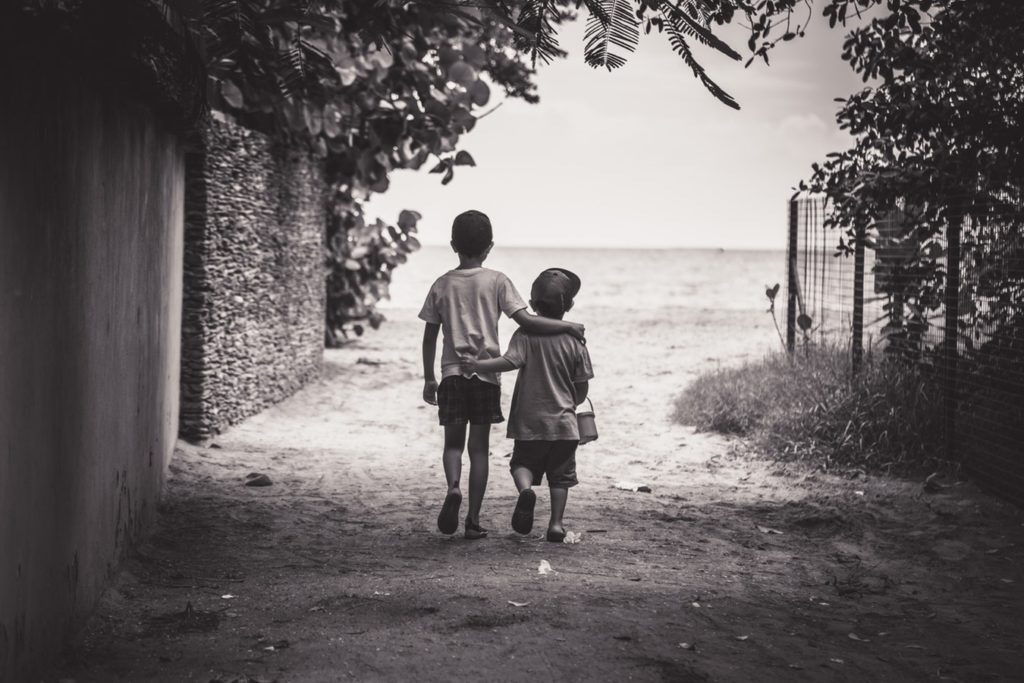June 20, 2021
Trinity Episcopal Church
Bend, Oregon
Mark 4: 35-41
The Rev. Canon Marianne Wells Borg
It is evening in the story by Mark in the Gospel today. The day had been filled with Jesus telling parables. Parables about the kingdom of God. What the world would look like if we listened and heard and responded to the spirit of God and not the reign of Caesar. Such a world when violence gives way to peace. Mercilessness to mercy. Hostility to hospitality. The first are last and the last first. The captive set free. Unconditional grace rolls down like a mighty stream. A very different world than the one we are used to.
The kingdom of God, Jesus said, is moved by a disrupting power. But not the kind of power that needs an empire or an army. The kingdom of God disrupts the way a mustard seed disrupts.
The disciples had just heard that parable. The image of the mustard seed toying with their understanding of what kind of mission and vision they were part of.
A mustard seed is a tiny thing. Easily not noticed. Seems insignificant. But when a mustard plant springs forth it pops up in places you least expect. And did not plan for. Mustard plants are a nuisance. Hard to tamp down. Hard to get rid of. Hard to control. In that they are mighty. But not like the great cedar of Lebanon which in Mark’s Day was a metaphor for a towering empire. No, not like a great cedar. The kingdom of God is more like a mustard seed and mustard plant.
It had been a long day. And now Jesus and his disciples depart in a boat and continue their journey. It is not clear they know where they are going. No particular destination is named. But they know they must continue and move on.
I don’t think the story in Mark’s gospel is an actual report of something that happened. Mark’s gospel is written some 40 years after Jesus’ death. I don’t think we have this story because one of the disciples in that boat took notes on all this, held on to them, and passed them on to Mark. I don’t think it’s that kind of story.
So, it is not important to me whether this particular story really happened or not. But I do think this story is true.
I know, how many times have you heard me, or others say that. Well, I don’t know if this story happened this way or not, but I know this story is true.
I say this story is true because I think the way Jesus is described in this story was true about him. I am convinced his followers experienced him the way Mark describes him in this story. And the followers of Jesus in Mark’s community didn’t need notes about a particular past event to remind them. They just needed to remember him. And it was like he was alive again.
So, Jesus and the disciples in Mark’s story are crossing a sea to an unknown destination. And a great windstorm arises. It rocks them. Tosses them about. They feel swamped and overwhelmed. They are disoriented. Their lives are in peril.
The hearers of Mark’s gospel are living in wartime. They hear this story while they are in wartime. Mark’s gospel was written around 70 CE. Either just before or just after the destruction of the Temple in Jerusalem. So, 40 years after Jesus execution.
The hearers of this story are being tossed about and threatened by political and economic and religious struggles. The structure of their world order is tumbling around them. Everything is destabilized. Everything is being turned upside down. In the same way the disciples in the story are being tossed and imperiled by a life-threatening sea.
So when we hear in the story Jesus is asleep in the stern amidst such turmoil, I suspect that those listening to this story were wondering where is Jesus in our time of crisis? As good as asleep. As if he doesn’t care about what is going on.
The hearers of this story can relate. Directly. Viscerally. To what Mark is describing.
And then Mark has Jesus say “Why are you afraid? Have you still no faith?”
I have no doubt that those in Mark’s community heard those questions as though those questions were being asked of them. Why are you afraid? Have you still no faith? Is the kingdom of God and the hope of a different world being buried in the rubble of the chaos of the day? Was Jesus’ death the death of this vision? Or are you going to carry it on?
I suggest Mark is telling this story the way he does to shake his listeners out of their own sleep and fear and paralysis. Awaken them afresh to the dream of Jesus. Which Jesus insisted was God’s dream for us. And which as followers of Jesus is our dream for all of humanity.
Then Mark has Jesus say to the sea, amidst perilous uncertainty and turmoil: Peace. Be Still. Peace. Be still.
And the wind ceased.
Perhaps the turmoil inside Mark’s listeners quieted at that moment too. Perhaps in hearing this story they realized they could, they must, continue their journey even if they don’t know where they are going and where it will lead.
Mark tells this wonderful story to a community who needs a word of consolation and hope. He wants to reawaken his community’s memory of Jesus. And remind them who he was. And is for them. And who they are. Disciples themselves who are called to bring the kingdom of God into existence for those who think such a world is impossible.
Who is this, asks Mark, that even the wind and the sea obey him?
It is Jesus. The hearers of this story remember his fierceness. His compassion. His indefatigable nerve. His tenderness. His trustworthiness. His steadfastness amidst tumultuous times. His calm certitude and conviction. His vision of another way to be with one another. Another way to order the world. And like the prophets of old, his passion. His passion for the impossible. Knowing the impossible can become possible. Because we are the ones who will make it so.
Those who knew Jesus and those who heard about him would recognize these qualities described in Mark’s story. What they heard in this story they knew to be true.
So, I am not concerned whether this story happened in the way it was told, if it was an event that could be documented. I am very compelled and moved by what this story says about Jesus. That’s the testimony I think is most important.
And as is true of so many Gospel stories, these stories become stories for and about us as well. We might experience this story speaking to our situation today. We are in turbulent times. Our January 6 might be equivalent to the destruction of the temple. Our time is fraught with uncertainty, where the best lack all conviction and the worst are full of passionate intensity to quote Yeats about his day.
And today, through Mark’s story, we too are reminded of Jesus. He could still a storm. Steady trembling hearts. Make a way where there was no way. I say this story is true. About Jesus. And us. A parabolic story. A metaphorical story. About then. And now.
Do not be afraid. Do not give up hope. Do not give up on a better future. We are the ones who will make it so. We will make true the truth of this story. Because of our witness and action. We will not let each other down. We will not let each other down.




Pingback: The Kingdom of God - The Marcus J Borg Foundation
Beautifully written. Thank you for lifting up this story to a new understanding for me. I am deeply moved.